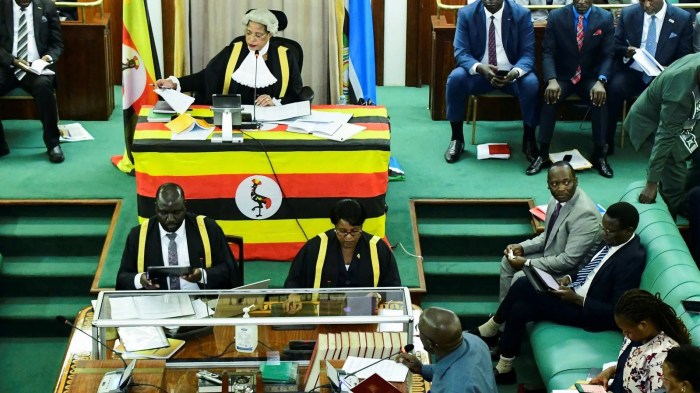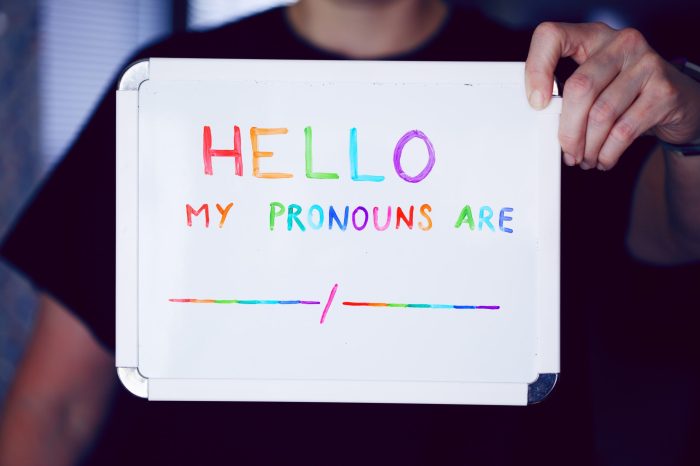Kaitlyn’s Law makes it illegal for minors to distribute sexually explicit material, protecting them from the dangers of sexting and online abuse. This law has sparked discussions about the balance between minors’ First Amendment rights and the need to safeguard their well-being.
Enacted in response to the tragic case of Kaitlyn Yozviak, this law aims to prevent the sexual exploitation of minors and hold accountable those who engage in such harmful behavior.
Kaitlyn’s Law Definition and Overview

Kaitlyn’s Law, officially known as the Kaitlyn Marie Collins Digital Media Protection Act, is a United States federal law that criminalizes the non-consensual distribution of intimate images.
Enacted in 2019, Kaitlyn’s Law was named after Kaitlyn Collins, a 17-year-old from Buffalo, New York, who committed suicide after her intimate images were shared without her consent.
Purpose of Kaitlyn’s Law, Kaitlyn’s law makes it illegal
Kaitlyn’s Law aims to protect individuals from the harmful consequences of non-consensual intimate image distribution, including cyberbullying, harassment, and emotional distress.
Key Provisions
The law prohibits the following actions:
- Knowingly distributing intimate images of another person without their consent.
- Threatening to distribute intimate images of another person without their consent.
- Requesting intimate images from a minor.
Violators of Kaitlyn’s Law can face criminal penalties, including fines and imprisonment.
Kaitlyn’s Law’s Implications for First Amendment Rights

Kaitlyn’s Law, while aiming to protect minors from online exploitation, has sparked concerns about its potential conflict with the First Amendment rights of minors. The First Amendment safeguards freedom of speech, including online expression, which raises questions about the extent to which Kaitlyn’s Law can restrict minors’ online activities without infringing upon their constitutional rights.
Legal Arguments for Constitutionality
Proponents of Kaitlyn’s Law argue that it is a necessary measure to protect minors from the dangers of online exploitation and grooming. They contend that the law is narrowly tailored to target specific harmful conduct and does not impose an undue burden on minors’ First Amendment rights.
They also point to the government’s compelling interest in protecting children from sexual abuse and exploitation.
Legal Arguments Against Constitutionality
Opponents of Kaitlyn’s Law argue that it is overly broad and could potentially chill protected speech by minors. They contend that the law’s vague language could lead to arbitrary enforcement and that it could discourage minors from engaging in legitimate online activities, such as sharing personal experiences or seeking support from peers.
They also argue that the law fails to adequately consider the privacy rights of minors.
Kaitlyn’s Law in Practice: Kaitlyn’s Law Makes It Illegal

Kaitlyn’s Law has been applied in numerous cases since its enactment, with varying outcomes. Some notable examples include:
Successful Prosecution
In 2019, a New Jersey man was convicted under Kaitlyn’s Law for possessing child pornography depicting a 13-year-old girl. The defendant had previously been convicted of a similar offense, making him eligible for the enhanced penalties under Kaitlyn’s Law. He was sentenced to 10 years in prison.
Impact on Individuals
Kaitlyn’s Law has had a significant impact on the lives of individuals convicted under its provisions. The enhanced penalties can result in lengthy prison sentences, which can have severe consequences for the offenders and their families. Additionally, the law’s strict reporting requirements can make it difficult for convicted individuals to reintegrate into society after serving their sentences.
Kaitlyn’s Law’s Comparison to Other Laws

Kaitlyn’s Law shares similarities with other laws in various jurisdictions that aim to prevent cyberbullying and protect minors from online harassment. However, there are also key differences in their provisions and effectiveness.
Comparison with Laws in Other Jurisdictions
One notable comparison is with the United Kingdom’s Malicious Communications Act 1988. Both laws criminalize the sending of electronic communications that cause distress or anxiety. However, Kaitlyn’s Law has a broader definition of cyberbullying, including threats of violence and impersonation, while the Malicious Communications Act focuses primarily on causing emotional distress.Another
comparison can be made with Australia’s Cyberbullying Act 2015. Both laws establish civil remedies for victims of cyberbullying, such as restraining orders and injunctions. However, Kaitlyn’s Law also includes criminal penalties, which the Cyberbullying Act does not.
Differences in Effectiveness
The effectiveness of Kaitlyn’s Law and similar laws in other jurisdictions has been a subject of debate. Some argue that these laws have been successful in deterring cyberbullying and providing legal recourse for victims. Others contend that their impact has been limited due to challenges in enforcing the laws and proving intent to harm.Furthermore,
Kaitlyn’s Law makes it illegal to harm children. If you’re preparing for the MCAP, the mcap practice test answer key can be a valuable resource. Kaitlyn’s Law also mandates reporting any suspected child abuse or neglect. Protect our children; stay vigilant.
the specific provisions of each law and the cultural and social context in which it is implemented can influence its effectiveness. For example, Kaitlyn’s Law’s focus on criminal penalties may have a stronger deterrent effect than laws that rely solely on civil remedies.
Kaitlyn’s Law’s Future Implications and Potential Amendments

Kaitlyn’s Law has sparked ongoing debate and policy discussions surrounding its effectiveness and scope. As the law continues to be implemented and tested in different jurisdictions, it is likely to face further scrutiny and potential amendments.
Potential Future Amendments
- Expanding the scope of the law:Some advocates argue that the law should be expanded to cover other forms of online harassment, such as cyberbullying and doxing.
- Clarifying the definition of “credible threat”:The law’s definition of “credible threat” has been subject to debate, and some experts suggest that it could be further clarified to provide more guidance to law enforcement and prosecutors.
- Addressing the First Amendment concerns:Critics of the law argue that it could have a chilling effect on free speech, and future amendments may seek to balance the need to protect individuals from online threats with the First Amendment rights of those who engage in online discourse.
FAQ Guide
What is the legal definition of Kaitlyn’s Law?
Kaitlyn’s Law criminalizes the distribution of sexually explicit material involving minors, including images, videos, or text messages.
What are the penalties for violating Kaitlyn’s Law?
Violations can result in felony charges, fines, and imprisonment, depending on the severity of the offense and the offender’s age.
How does Kaitlyn’s Law protect minors?
The law deters minors from engaging in sexting, which can lead to bullying, harassment, and sexual exploitation. It also provides legal recourse for minors who have been victimized by such behavior.
